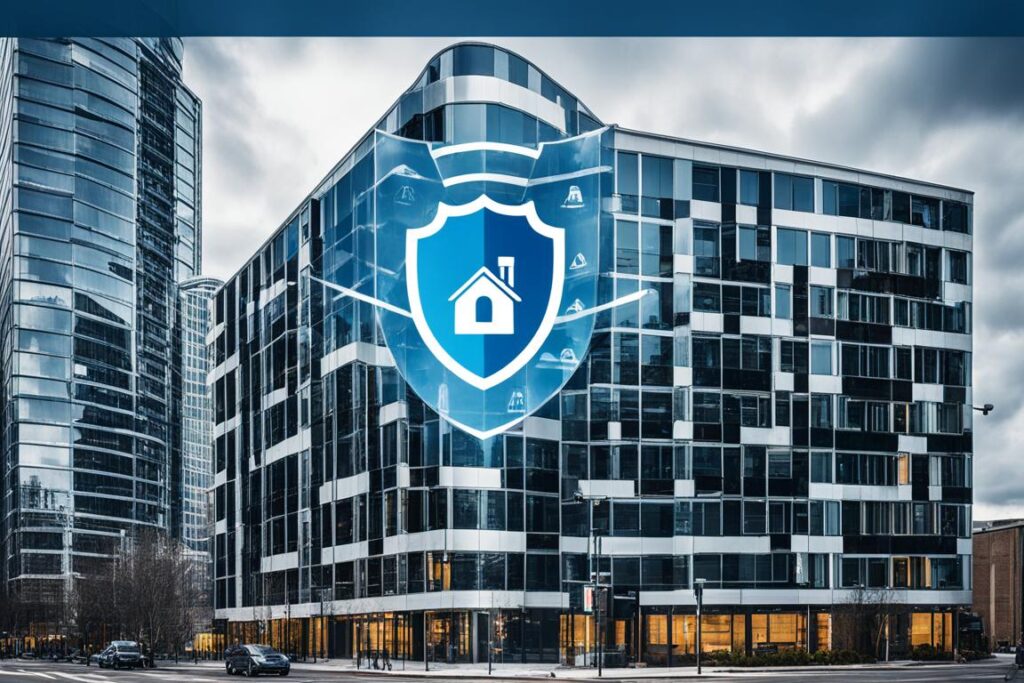Money laundering is a pervasive issue that can affect all industries, including real estate. As a vital sector in Romania, the real estate industry is vulnerable to money laundering activities, which is why AML compliance is essential. AML regulations for real estate are designed to prevent illegal activities such as money laundering, terrorist financing, and more. Therefore, it is critical for real estate professionals to understand the importance of AML compliance to prevent legal and reputational damages.
The regulations, procedures, and guidelines established under AML ensure that the industry operates with the highest level of integrity, transparency, and accountability. These regulations provide a framework for real estate professionals to follow, outlining the proper steps to identify and verify the identities of parties involved in a transaction and ensure that the funds’ source is legitimate. By adhering to these regulations, real estate professionals can prevent the exploitation of the industry for illicit activities.
Key Takeaways:
- AML compliance is crucial for the real estate industry in Romania to prevent money laundering activities.
- Real estate professionals should understand the AML regulations for the industry to ensure full compliance.
- AML regulations provide a framework for real estate professionals to identify and verify the identity of parties involved in a transaction and ensure the funds’ legitimacy.
- By adhering to AML regulations, real estate professionals can prevent legal and reputational damages.
- Compliance with AML regulations promotes integrity, transparency, and accountability in the real estate industry.
Understanding the Risks of Money Laundering in Real Estate
Money laundering poses a significant risk to the real estate sector. Criminals exploit vulnerabilities in real estate transactions, using various methods to launder illicit funds, including mortgage fraud, wire transfer scams, and shell company schemes. These criminal activities can result in reputational damage, financial loss, and legal repercussions for real estate professionals.
That’s why real estate risk management is essential for preventing money laundering in the industry. Real estate professionals must have a thorough understanding of the risks involved in real estate transactions and take adequate measures to manage and mitigate these risks.
AML compliance is also essential for real estate money laundering prevention. Real estate professionals must comply with relevant AML regulations and implement effective AML procedures to identify and prevent suspicious activities.
By prioritizing real estate risk management and implementing robust AML procedures, real estate professionals in Romania can safeguard their businesses against money laundering risks and protect their reputation and assets in the long run.
Aml Regulations for Real Estate in Romania
Real estate professionals in Romania are subject to specific Anti-Money Laundering (AML) regulations aimed at preventing financial crimes. These regulations require realtors to adhere to legal guidelines to combat money laundering in real estate transactions. In Romania, the National Office for the Prevention and Control of Money Laundering (ONPCSB) is responsible for enforcing the AML regulations.
According to the Romanian legislation, real estate companies and agents must implement risk-based measures to identify, assess, and mitigate the risk of money laundering effectively. A risk-based approach assumes that companies and agents decide which risks are most likely to affect their business and devote resources accordingly. This approach must be taken into account while developing adequate internal policies, operational procedures and conducting relevant trainings for staff at all levels.
In addition, real estate agents and companies must verify the identity of their customers and ensure they are not accepting funds from suspicious individuals or organizations. Failure to comply with AML regulations could lead to significant legal and financial repercussions for real estate professionals, including hefty fines or even criminal charges.
It is essential for real estate professionals in Romania to stay informed about AML regulations and strive to remain compliant with them. This can help to prevent illicit activities and protect the integrity of the real estate industry.

Implementing AML Screening in Real Estate Transactions
To effectively prevent money laundering in the real estate industry, it is essential to implement robust AML screening procedures. This involves identifying and verifying the identities of buyers, sellers, landlords, tenants, and other parties involved in a transaction to detect any potential risks. One screening method that can be used is the use of electronic identity verification (e-IDV) technologies, which can quickly and accurately assess an individual’s identity and flag potential money laundering activities.
Real estate professionals in Romania must ensure that they comply with AML regulations when implementing screening procedures. This involves having clear policies and procedures in place and using appropriate screening tools and technologies to detect money laundering risks.
Using Electronic Identity Verification (e-IDV)
Electronic identity verification (e-IDV) involves using advanced technologies, including machine learning and artificial intelligence (AI), to authenticate an individual’s identify. These technologies can quickly and accurately verify an individual’s identity by checking their personal information against multiple data sources, including government databases and credit bureaus.
Using e-IDV not only helps to streamline the AML screening process, but also improves accuracy and reduces the risk of manual errors. However, it is important to choose a reliable and secure e-IDV provider and ensure that the results are compliant with AML regulations.
Other Screening Methods
Aside from e-IDV, there are other screening methods that real estate professionals can use to detect potential money laundering activities. These include:
- Screening against national and international watchlists
- Conducting risk assessments based on a customer’s profile and transaction history
- Reviewing supporting documentation, such as passports, proof of address, and financial statements
By implementing appropriate screening methods and technologies, real estate professionals can significantly reduce the risk of money laundering in their transactions and ensure compliance with AML regulations.
Conducting AML Due Diligence in Real Estate
To prevent money laundering in real estate transactions, it is essential to conduct AML due diligence. This process involves verifying the identities of all parties involved, including buyers, sellers, and agents, and conducting thorough background checks on them. By doing so, real estate professionals in Romania can ensure that they do not inadvertently facilitate money laundering activities.
A key component of AML due diligence is verifying the source of funds used in a transaction. This involves understanding where the money came from and whether it was obtained through legal means. To do so, real estate professionals may need to request documentation, such as bank statements, tax records, or proof of employment.
It is also important to conduct enhanced due diligence on high-risk individuals or transactions. These may include individuals who are politically exposed, located in high-risk jurisdictions, or associated with unusual or suspicious activity. Real estate professionals should be vigilant and follow established protocol when dealing with such situations.
In addition to verifying and screening individuals, it may be necessary to conduct due diligence on the property itself. This could include reviewing property ownership history, conducting property inspections, and ensuring that the property is not being used for illegal purposes.
“By conducting AML due diligence in real estate transactions, we can help ensure a safe and secure market for buyers and sellers alike.”

Failure to conduct proper AML due diligence can result in significant legal and reputational risks for real estate professionals in Romania. It is essential to follow established protocols and guidelines for AML compliance and to continually update and refine these processes as needed.
Developing an AML Policy for Real Estate Businesses
Having a robust AML policy is crucial for real estate businesses to prevent money laundering. It not only protects the company from legal and reputational risks but also ensures compliance with AML regulations for real estate. A comprehensive AML policy should consider all potential risks and outline preventive measures.
The policy should define clear roles and responsibilities for employees in identifying and reporting suspicious activity. It should include a risk assessment framework that addresses customer due diligence and ongoing monitoring of clients and transactions. It should also outline procedures for reporting suspected money laundering activity and provide ongoing training for employees.
Key Components of an Effective AML Policy for Real Estate
- Customer Due Diligence procedures
- Employee Screening & Training
- Risk Assessment Procedures
- Ongoing Monitoring of Clients & Transactions
- Reporting Requirements and Procedures for Suspicious Activity
Developing and implementing an effective AML policy is an ongoing process that requires careful review and updating. It is crucial that all real estate professionals maintain a thorough understanding of AML regulations for real estate. By doing so, they can help to protect their business, their clients, and the entire real estate industry.
Training Real Estate Professionals on AML Compliance
Real estate businesses must prioritize AML compliance to mitigate the risks of money laundering in property transactions. Providing AML training to real estate professionals is key to ensuring this compliance. It helps them identify suspicious activities, monitor transactions, and report potential money laundering cases.
The training programs should cover the legal framework for real estate compliance and AML regulations specific to the industry. The sessions must discuss the red flags for identifying suspicious transactions, the reporting procedures, and the role of proper records management and documentation. It is crucial that real estate professionals understand their legal responsibilities and the consequences of non-compliance.
Apart from the legal aspect, training should also focus on the practical aspects of applying compliance measures to real-life situations. It is essential to equip professionals with the skills necessary to manage and execute due diligence investigations, apply AML screening procedures, and collaborate with other stakeholders such as financial institutions and regulatory authorities.
“AML compliance training prepares real estate professionals to prevent money laundering and terrorist financing activities in property transactions.”
Ensuring that all real estate professionals receive AML training is fundamental in mitigating the legal risks and reputational damage resulting from non-compliance. Organizations must assess the training needs of their staff and ensure ongoing training to keep up with ever-changing AML regulations and evolving money laundering risks in the industry.
Key Takeaways
- Training real estate professionals on AML compliance is crucial in mitigating the risks of money laundering in property transactions.
- The training programs should cover legal frameworks, regulations, red flags for identifying suspicious transactions, reporting, and proper records management.
- Training should also focus on the practical aspects of applying compliance measures to real-life situations.
- Organizations must assess the training needs of their staff and ensure ongoing training to keep up with changing AML regulations.
Collaboration with Financial Institutions and Authorities
When it comes to combating money laundering in the real estate sector, collaboration between real estate professionals, financial institutions, and regulatory authorities is crucial. Sharing information and leveraging each other’s expertise can go a long way in detecting and deterring illicit activities.
Financial institutions can support real estate compliance by providing detailed information about their customers’ financial transactions. In addition, collaboration with regulatory authorities can help identify any gaps in AML regulations for real estate and ensure better compliance with legal requirements.
Real estate professionals can also benefit from forming partnerships with other industry players to share information and knowledge. This can include attending conferences and industry events to learn about best practices and new technologies that can strengthen AML processes.
Collaboration between the various stakeholders can maximize the effectiveness of AML regulations for real estate and help ensure the integrity of the industry as a whole. By working together, real estate professionals, financial institutions, and regulatory authorities can create a more robust and secure environment for real estate transactions.
Technology Solutions for AML Compliance in Real Estate
In today’s digital age, technology plays a vital role in enhancing AML compliance in the real estate industry. There is a range of software and tools available that can streamline AML processes and improve risk management.
One such solution is the use of machine learning algorithms to analyze transaction data and identify potential risks. This technology can help real estate professionals flag suspicious activity and take appropriate action.
Another software solution is Transaction Monitoring Systems (TMS), which can track and analyze transaction data in real-time to identify unusual activity. This technology can help real estate businesses comply with AML regulations and mitigate money laundering risks.
Moreover, electronic identity verification (eIDV) solutions can be used to verify the identities of buyers and sellers in real estate transactions quickly and efficiently. This technology can save time and lower the risk of errors.
Real estate professionals in Romania can also leverage the power of blockchain technology to enhance transparency and traceability in real estate transactions. This technology can enhance the integrity of the transaction record, reducing the risk of fraudulent activities.

“By adopting technology solutions, real estate businesses can strengthen their AML processes and ensure compliance with regulations more effectively.”
Overall, technology plays a crucial role in modern AML compliance in the real estate industry. By embracing technology solutions, real estate professionals can streamline AML processes, improve risk management, and prevent money laundering activities more effectively.
Best Practices for AML Compliance in Real Estate
Real estate professionals in Romania must adhere to strict AML regulations to prevent money laundering in the industry. Here are some best practices that can help strengthen AML compliance:
- Conduct thorough due diligence: Verify the identities of all parties involved in transactions and conduct background checks to detect any potential red flags.
- Implement AML screening procedures: Utilize technology solutions such as AML screening software to identify and mitigate money laundering risks.
- Develop a comprehensive AML policy: Create an internal policy that outlines AML processes and procedures for all employees to follow.
- Provide regular training: Offer ongoing AML compliance training to all real estate professionals to keep them up-to-date on current regulations and procedures.
- Collaborate with financial institutions and authorities: Establish relationships with these entities to share information and improve detection of potential money laundering activities.
By implementing these best practices, real estate professionals can help ensure compliance with AML regulations and contribute to the fight against money laundering in the industry.






